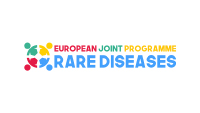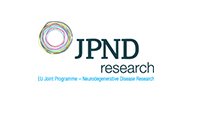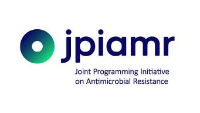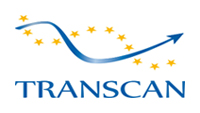CIHR dedicated funding for European programs in key research areas

January 27, 2021
The Canadian Institutes of Health Research continues its long-standing collaboration with the European Commission by supporting four (4) joint transnational calls in 2021.
The Canadian dedicated funding will support the involvement of Canadian researchers in multinational research consortia in the following areas: rare diseases, antimicrobial resistance, neurodegenerative diseases and cancer.
CIHR engagement in the EU Framework Programme Horizon 2020 is predominantly through public-to-public (P2P) partnerships involving EU member states, Third Countries (e.g. Canada), Associated Countries, and the European Commission.
Between 2010-11 and 2019-20, CIHR has participated in 49 joint transnational calls under P2Ps and has funded 191 multinational teams. The organization has invested over $53 million and leveraged $190 million through these programs. CIHR has dedicated an additional $5.3 million to four (4) joint transnational calls in 2021.
Horizon Europe will come into effect in 2021 and will be the biggest multilateral research and innovation programme in the world, with a proposed budget of around €95.5 billion. CIHR looks forward to continued engagement with European partners through Horizon Europe and under the EU-Canada Science and Technology Agreement, which marks 25 years of collaboration in 2021.
2021 Joint Transnational Calls
Website links to the joint transnational calls are added as they become available.
EJP Rare Diseases Call: Social Sciences and Humanities Research to improve health care implementation and everyday life of people living with a rare disease
an international component of the CIHR Personalized Health Initiative
Description: Enable researchers in different countries to build effective collaboration on a common interdisciplinary research project based on complementarities and sharing of expertise, with a clear future benefit for patients.
Funding: $1.5M from CIHR-IG to support the Canadian component of up to five (5) transnational teams, over 3 years. The maximum CIHR contribution per grant is $100,000 per year for up to three (3) years. Estimated call budget 11.5 million Euro.
Deadline: February 2021 (pre-proposal) & June 2021 (full proposal)
JPND Call: Linking pre-diagnosis disturbances of physiological systems to Neurodegenerative Diseases
an international component of the CIHR Dementia Research Strategy
Description: Fund research projects that will add value to further advancing the use of imaging technologies and brain stimulation techniques. Proposals will need to focus on one or several of the following neurodegenerative diseases: Alzheimer’s disease and other dementias, Parkinson’s disease and PD‐related disorders, Prion diseases, Motor neuron diseases, Huntington’s disease, Spinocerebellar ataxia and Spinal muscular atrophy.
Funding: $999K from CIHR-IA and Brain Canada Foundation/Women’s Brain Health Initiative for the Canadian component of up to three (3) joint transnational teams, over 3 years. The maximum contribution per grant is $111K per year for up to three (3) years. Estimated call budget 19 million Euro.
Deadline: March 2021 (pre-proposal); June 2021 (full proposal)
JPIAMR Call: One Health interventions to prevent or reduce the development and transmission of antimicrobial resistance
an international component of the CIHR Antimicrobial Resistance Initiative
Description: The call advocates for a One Health approach to understand the impact of interventions on the development and transmission of antibiotic resistance and to design, implement, evaluate, and compare interventions that will have a true impact on preventing or reducing the development and transmission of antibiotic resistance in and between the different One Health settings (human, animal, environment).
The call will support research projects that also have the potential impact in areas where the risk and burden of AMR is greatest, such as in LMIC settings in Asia and Africa.
Funding: $2.2M from CIHR (III & IPPH) to support the Canadian component of four (4) teams, over three (3) years. The maximum CIHR contribution per grant is $200K for the coordinator of team or $166,667 to participate in the team per year for up to three (3) years. Estimated call budget 24.9 million Euro.
Deadline: March 2021 (pre-proposal); July 2021 (full proposal)
TRANSCAN-3 Call: Next generation cancer immunotherapy: targeting the tumour microenvironment
Description: The co-funded call will focus on immunotherapies targeting the tumour microenvironment (TME). In the context of translational research, this topic at the intersection of laboratory and clinical research in immuno-oncology will comprise two general aims which concur to the possible clinical applications:
- Aim 1: Identification and validation of TME subclasses and their contribution to the resistance mechanisms: Translational research using tumour samples collected from retrospective and/or prospective cohorts of patients.
- Aim 2: Targeting TME to improve efficacy of immunotherapy in human patients.
Proposals will have to cover at least one of the six (6) specific sub-aims listed on Transcan-3 website. Approaches should be directed to draw up a multidimensional TME map paving the road for new efficacious immunotherapy strategies. Projects should be built from a solid and established hypothesis and should be relevant with regards to the possible improvements in clinical practice.
Funding: $900K from CIHR-ICR to support the Canadian component of two (2) joint transnational teams, over three (3) years. The maximum CIHR contribution per grant is $150K per year for up to three (3) years.
Deadline: June 2021 (pre-proposal); November 2021 (full proposal)
Contact information
For questions about this strategic initiative and research objectives, please contact:
CIHR Contact Centre
Telephone: 613-954-1968
Toll Free: 1-888-603-4178
Email: support-soutien@cihr-irsc.gc.ca
Disclaimer
The information contained in this announcement is subject to change and does not commit CIHR to the requirements outlined above. The final funding opportunity will be published on CIHR’s Funding Opportunity Database, ResearchNet.
- Date modified:



